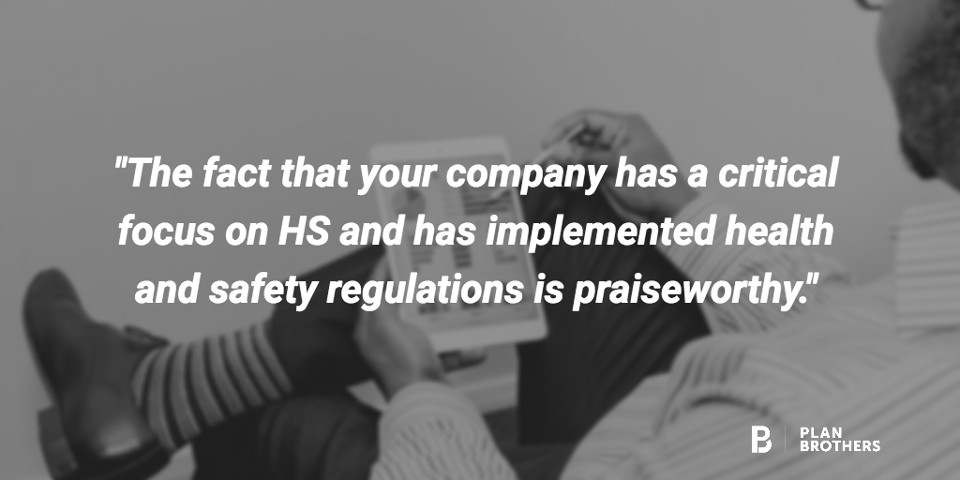5 Reasons To Not Change A Thing You Are Doing In Health And Safety
Lately, the media has put a great deal of focus on changes that companies should implement in order to achieve better Health and Safety (HS) management. Before you make those changes, it is important that you understand what you are doing right; if you’re doing something right, you should not change it.
1. Top Down Management of Field Operations
As an H&S Manager, it is essential that you are knowledgeable on health and safety issues, and that you communicate with your employees regarding these topics. Knowledge and communication are as important as making reports. In the end, you recognise that it's your responsibility if one of your employees has a work-related accident or illness. Keep gathering information and communicating with your employees.
2. Focus Health and Safety Regulations
The fact that your company has a critical focus on HS and has implemented health and safety regulations is praiseworthy. Accidents often occur when employees don’t understand how to comply with regulations, and that lack of understanding causes them to break the procedures set in place to ensure HS in the workplace. This not only has severe consequences for the workers, but it also has financial implications for the companies that experience these accidents. By following, maintaining and having a plan for health and safety, you ensure that your company will keep accidents to a minimum and that your employees will feel safe and healthy at work.

3. Auditing of Health and Safety Performance at the Workplace
Your system for auditing Health and Safety performance indicators is the key to your company’s success. The data and statistics you get from these reports help you to determine which areas of your health and safety program need to have a bigger focus and which areas are functioning well. You probably have excellent checklists that you use to ensure that everything is done properly. Keep up the good work!
4. Everyone in Your Company Is Responsible for Maintaining Good Health and Safety Processes
You know that health and safety aren’t just the jobs of one person; in fact, it is the responsibility of everyone from the CEO to the intern. Everyone in the company has had the right training and is actively ensuring a positive trend in monitoring safety operations. In addition, deviations are reported right away by the first person who notices them. Everyone feels safe in your company because everyone is helping to make the company a safe place to work.
5. The Right Talent and Organisation of Teams
This point is arguably the most important one. You have done a very good job at attracting the right and most competent people for the jobs in your company. These people understand fully what their jobs entail and they work together in an organised fashion to ensure that H&S procedures are followed.
Congratulations on the amazing work you have been doing so far! If you just read this and don’t currently have the above points in order, fear not. You can get everything in order and keep your employees safe.
If you want to broaden your understanding around health and safety, check our blog series about the VUCA framework. If you want to read about a real-life solution, check the Fortum Case Study.
We are building the world's first operational involvement platform. Our mission is to make the process of finding, sharing, fixing and learning from issues and observations as easy as thinking about them and as rewarding as being remembered for them.
By doing this, we are making work more meaningful for all parties involved.
More information at falcony.io.
Related posts
HSEQ in a Manufacturing Facility: This Is What You Should Check
Whether you are in charge of health and safety, environmental compliance or quality, a checklist is...
7 Common Accidents in the Mining and Extraction Industry
The mining and extraction industry plays a critical role in sourcing essential raw materials for...
Most Common Safety Risks for the Mining and Extraction Industry
The mining and extraction industry plays a crucial role in providing essential raw materials for...





